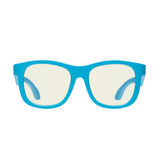$8.95 Flat Rate Shipping AU Wide | Free Shipping Over $100
$8.95 Flat Rate Shipping AU Wide | Free Shipping Over $100
Your Cart is Empty
Add description, images, menus and links to your mega menu
A column with no settings can be used as a spacer
Link to your collections, sales and even external links
Add up to five columns
Add description, images, menus and links to your mega menu
A column with no settings can be used as a spacer
Link to your collections, sales and even external links
Add up to five columns

June 23, 2020
The other day, I found myself trying to explain how we took photographs when I was a child, using a roll with just 30 films. My kids just stared at me in confusion. It reminded me of the way I felt when my dad would describe my grandma heating up a big copper pot in the back yard on ‘washing day’. It was like hearing about an alternate universe. Our world is changing, and as much as new technologies open up new opportunities, they also present new challenges. One of these concerns is the impact of our digitized lives on the sleep patterns of our families. In particular, the bright blue light used to backlight the screens of our tablets, laptops and smartphones.
When sleep researchers refer to blue light, they don’t necessarily mean light that actually looks bluish to the naked eye. Blue light wavelengths are part of the bright white light that is used to backlight screens and devices, and is similar to the bright light of midday.
Blue wavelengths are the most beneficial during the day because they boost attention, reaction times and mood. However, the flipside of this is that blue light has the potential to be the most disruptive to sleep patterns after sundown.
Our sleeping patterns are ruled by light. It is light and darkness that trigger the release of sleep chemicals that help us fall asleep, stay asleep, and wake up alert in the morning. The fall of dusk triggers the release of melatonin, the so-called ‘sleep hormone’, which lets our body clocks know it’s time to start feeling sleepy.
However, in our modern electronic society, where artificial sources of blue light continue long after sunset, are our sleep rhythms becoming confused?
Studies have suggested that exposure to blue light suppresses the release of melatonin. One study (in Proceedings of the National Academics of Sciences) conducted in 2014 showed that Ipad readers started producing melatonin 1.5 hours later than those who read a traditional book before bed. They found that “participants who read from the iPad were less sleepy before bedtime, but sleepier and less alert the following morning after eight hours of sleep.”
It is important to remember that a child's eyes are not as fully developed as an adult's are. While there is still much unknown about the effects of blue light on children’s eyes, a recent study suggests that bright light exposure can make it harder for children to fall asleep when it’s bedtime.
This study, published in 2018, is one of the first to look at the effects of evening light exposure on melatonin suppression in 3 – 5 year olds. They found that exposing preschool-aged children to bright light in the evening almost completely suppressed melatonin production. Melatonin suppression began within 10 minutes and continued for almost an hour after the bright light was turned off.
The study raises concerns about the impact of tablets and smartphones, which are used held up to the face, close to the eyes.
In an ideal world, we would all stop using devices a couple of hours before bedtime.
However, let’s take a moment to take a look at how modern households really run.
Many of the best home-learning resources are accessible only via tablets and other devices. Also, the few hours before bed is often the time when over-tired kids (and parents) need a bit of quiet downtime. Besides, for many families, (ours included) snuggling up together to watch a movie is a valued part of the weekly routine.
Acknowledging the ways in which our society is changing, Babiators has developed Screen Savers. Screen Savers are non-prescription glasses that use Category 1 Lenses to block blue light wave lengths emitted from the screens of devices such as laptops, tablets and smartphones. The use of blue-light blocking glasses means that your children can have access to all the benefits of technology, without the negative impacts of artificial blue light on their sleep patterns.
 |

|
|
| SCREEN SAVERS - KEYHOLE | SUN + SCREEN BUNDLE - NAVIGATORS |